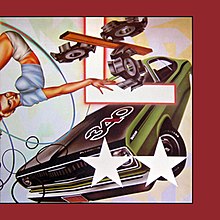
The Cars were an American rock band formed in Boston in 1976. Emerging from the new wave scene in the late 1970s, they consisted of Ric Ocasek, Benjamin Orr, Elliot Easton, Greg Hawkes (keyboards), and David Robinson (drums). Ocasek and Orr shared lead vocals, and Ocasek was the band's principal songwriter and leader.
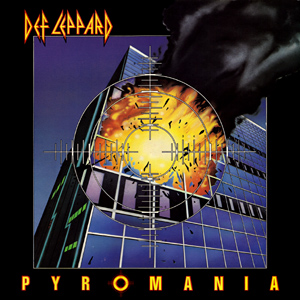
Pyromania is the third studio album by English rock band Def Leppard, released on 20 January 1983 through Vertigo Records in UK and Europe and through Mercury Records in the US. The first album to feature guitarist Phil Collen who replaced founding member Pete Willis, Pyromania was produced by Robert John "Mutt" Lange. The album was a shift away from the band's traditional heavy metal roots toward a more radio-friendly sound, finding massive mainstream success. Pyromania charted at No. 2 on the Billboard 200, No. 4 on the Canadian RPM Album chart and No. 18 on the UK Albums Chart. Selling over ten million copies in the US, it has been certified diamond by the RIAA.
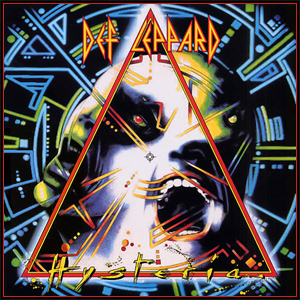
Hysteria is the fourth studio album by English rock band Def Leppard, released on 3 August 1987 by Phonogram Records. The album is the follow-up to the band's 1983 breakthrough Pyromania (1983). Hysteria's creation took over three years and was plagued by delays, including the aftermath of drummer Rick Allen's accident that cost him his left arm on 31 December 1984. Subsequent to the album's release, Def Leppard published a book titled Animal Instinct: The Def Leppard Story, written by Rolling Stone magazine senior editor David Fricke, on the three-year recording process of Hysteria and the difficult times the band endured through the mid-1980s. Lasting 62 minutes and 32 seconds, it is the band's longest studio album to date.

The Woman in Me is the second studio album by Canadian country singer-songwriter Shania Twain and her first to be produced by long-time collaborator and then-husband Robert John "Mutt" Lange. Released on February 7, 1995, it went on to become her biggest-selling recording at the time, selling 4 million copies by the end of the year, and was eventually certified 12× Platinum by the RIAA on December 1, 2000, for 12 million shipments throughout the United States. The album has sold an estimated 20 million copies worldwide. It was ranked number 8 on CMT's list of 40 Greatest Albums in Country Music in 2006. The album is credited with having influenced the sound of contemporary country music. Eight singles were released from the album for its promotion, including "Whose Bed Have Your Boots Been Under?", "Any Man of Mine", "(If You're Not in It for Love) I'm Outta Here!" and "You Win My Love", with each accompanied by a music video.

Candy-O is the second studio album by American new wave band the Cars, released on June 13, 1979, by Elektra Records.

Door to Door is the sixth studio album by American new wave band the Cars, released on August 25, 1987, by Elektra Records. The album was produced by frontman Ric Ocasek, with additional production by keyboardist Greg Hawkes. Three singles were released from the album, though only "You Are the Girl" reached the top 40 of the Billboard Hot 100, peaking at number 17. Door to Door became the Cars' lowest-charting studio album, peaking at number 26 on the Billboard 200, and within a year of its release the band would break up.

Greatest Hits is a greatest hits album by American rock band the Cars, released on October 25, 1985, by Elektra Records. "Tonight She Comes", a previously unreleased song, and a remix of "I'm Not the One" were issued as singles to support the album. It was a commercial success, going six-times platinum.
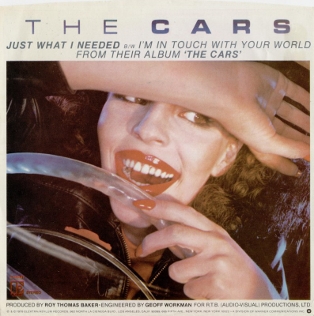
"Just What I Needed" is a song by American rock band the Cars from their self-titled debut album (1978). The song, which first achieved radio success as a demo, took inspiration from the Ohio Express and the Velvet Underground. The song is sung by bass player Benjamin Orr and was written by Ric Ocasek.
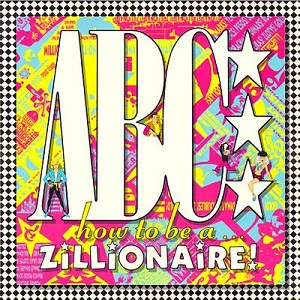
How to Be a ... Zillionaire! is the third studio album by English pop band ABC. It was originally released in October 1985, on the labels Neutron, Mercury and Vertigo. The album peaked at No. 28 on the UK Albums Chart and at No. 30 on the Billboard 200. Four singles were released from the album, "(How to Be A) Millionaire", "Be Near Me", "Vanity Kills", and the fourth was "Ocean Blue",. It is the group's only album to feature founder members Martin Fry and Mark White flanked by new members Eden and David Yarritu, the latter two credited merely as "performers" with effectively no or limited musical contribution to the album. The four-piece was also presented in a cartoon form for the album's artwork and promotional videos, and wore outrageous costumes and played false instruments for "live" promotional performances.
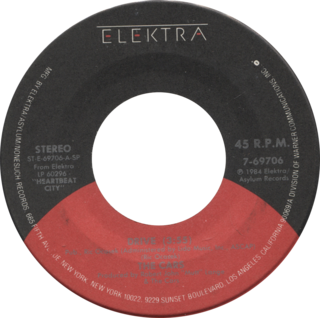
"Drive" is a song by American rock band The Cars from their fifth studio album, Heartbeat City (1984). It was released on July 23, 1984, as the album's third single. Written by Ric Ocasek, the track was sung by bassist Benjamin Orr and produced by Robert John "Mutt" Lange with the band. Upon its release, "Drive" became the Cars' highest-charting single in most territories. In the United States, it peaked at number three on the Billboard Hot 100 and topped the Adult Contemporary chart. It reached number five in the United Kingdom, number four in West Germany, number six in Canada and number three in Ireland.
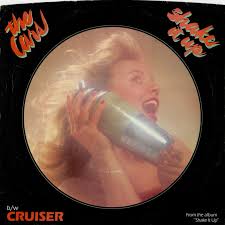
"Shake It Up" is a song by American rock band the Cars from their fourth studio album of the same name (1981). It was released on November 9, 1981, as the album's lead single. Although appearing for the first time in 1981, it was actually written years earlier by the band's songwriter and lead singer Ric Ocasek. The song became one of the Cars' most popular songs, peaking at number four on the Billboard Hot 100 and number two on the Billboard Top Tracks chart in early 1982. With the track "Cruiser" as its B-side, it reached number 14 on the Billboard Disco Top 80 chart.
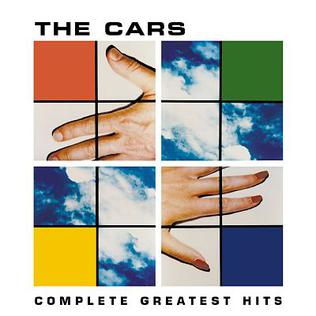
Complete Greatest Hits is a greatest hits album by American rock band the Cars, released on February 19, 2002, by Elektra Records and Rhino Records. It contains 20 singles and notable album tracks in chronological order of their original release. Sales of the album reignited following Ric Ocasek's death in September 15, 2019.
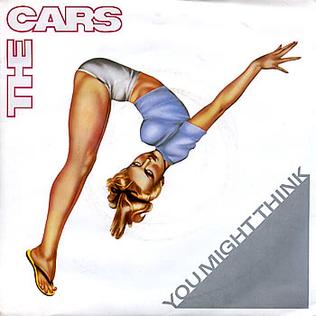
"You Might Think" is a song by American rock band the Cars from their fifth studio album, Heartbeat City (1984). The track was written by Ric Ocasek and produced by Mutt Lange and the Cars, with Ocasek also providing the lead vocals.
The discography of the American rock band the Cars includes seven studio albums, eight compilation albums, four video albums and 26 singles. Originating in Boston in 1976, the band consisted of singer/guitarist Ric Ocasek, singer/bassist Benjamin Orr, guitarist Elliot Easton, keyboardist Greg Hawkes, and drummer David Robinson. The Cars sold over 23 million albums in the United States and had 13 singles that reached the Top 40. The band was inducted into the Rock and Roll Hall of Fame in 2018.

"Good Times Roll" is a song by American rock band the Cars released as the first track from their 1978 debut album The Cars. Written by Ric Ocasek as a sarcastic comment on rock's idea of good times, the song features layered harmonies courtesy of producer Roy Thomas Baker.

"Magic" is a song by American rock band The Cars from their fifth studio album, Heartbeat City (1984). It was released on May 7, 1984, as the album's second single, reaching number 12 on the US Billboard Hot 100 and number one on the Billboard Top Tracks chart. The track was written by Ric Ocasek and produced by Robert John "Mutt" Lange and the Cars. Ocasek sang lead vocals.
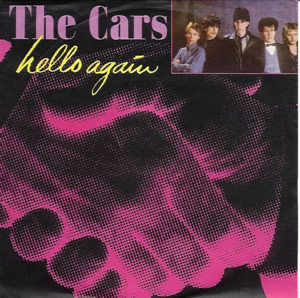
"Hello Again" is a song by American rock band the Cars from their album Heartbeat City (1984). It was released on October 15, 1984 as the album's fourth single. The song was the fourth top-20 entry from the album, reaching number 20 on the Billboard Hot 100 chart; it also reached number eight on the Hot Dance/Disco chart and number 22 on the Top Rock Tracks chart. Ric Ocasek sings lead vocals on the track.

"Missing You Now" is a song by American singer-songwriter Michael Bolton. It was the fourth single released from his 1991 album, Time, Love & Tenderness, and features saxophone player Kenny G. The track was co-produced by Walter Afanasieff, who co-wrote the song with Bolton and Diane Warren.

"Tonight She Comes" is a 1985 song by American rock band the Cars from their Greatest Hits album. It was released as a single in October 1985, reaching number seven on the Billboard Hot 100 in January 1986. The song reached number one on the Top Rock Tracks chart, where it stayed for three weeks.
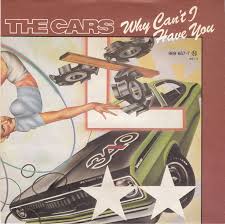
"Why Can't I Have You" is a song by American rock band the Cars from their fifth studio album, Heartbeat City (1984). It was released on January 7, 1985, as the album's fifth single. Written by Ric Ocasek, the song is a lush ballad.
